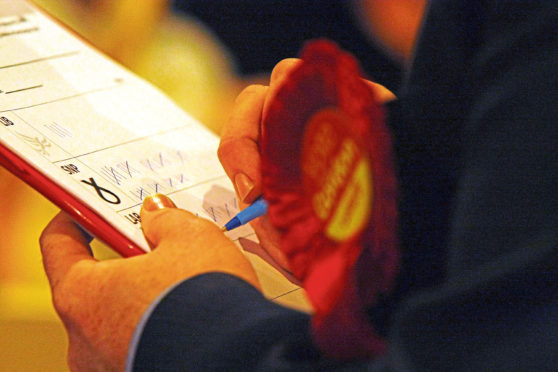Like a party at Gatsby’s, the fun is over, the melancholy sets in.
The grandest moment of Scottish nationalism has happened. We are witnessing the morning after. And it ends with a pitiful mess. One former first minister is in court defending sex charges, a former finance minister is trying to chisel the public for a £50,000 pay-off because he’s sad about losing his job.
The bigger party is split in so many ways there are not enough names for the shards. The loony wing has decided to run its own party, organised by a website called Wings Over Scotland.
The sensible wing is quitting. So far, six MSPs have promised to go – not just the class of 1990, who have had their time, but sadly youngsters who find the whole thing too horrible.
Where once the party never rang a journalist, now phones buzz off the table at awkward hours.
The first great phase of modern Scottish nationalism was in the late 1960s and 1970s when the discovery of oil in the North Sea raised the hopes of a nation suffering the post-industrial blues. This period ended in 1979 following a referendum defeat.
The second phase got going when the parliament arrived, and boomed from 2007 onwards. It is coming to an end, after another referendum defeat, and the oil running out.
After 2014, it was fashionable to say that Scotland had changed for ever. Though not, apparently, the SNP as it slips down a similar plughole to last time.
Scotland changed profoundly – a once-unimaginable independence referendum happened and Scots engaged on the question of their future like never before, and continue to do so.
But Scotland did not change at all – the structure of the state and the way money is spent is not much changed, and the problems are just the same.
The SNP did nothing to reform the public sector, its management or the conservative aspirations of government.
There is the whiff of hillbilly about the party – inbred, overly loyal, too angry about the outside world.
Perhaps they’ll play Duelling Banjos from the film Deliverance when the inevitable implosion occurs over the summer months.
The rot set in when the party gradually allowed its internal democracy to be usurped by a leadership team with a very clear idea about medium and message.
The necessary process of challenge and debate withered.
A culture of absolute loyalty took hold. Members were spoon fed arguments and woe betide the person who dared question the content.
New talent was stifled from coming through unless approved by the leadership team – accounting for Derek McKay’s meteoric rise.
Not that there was much room for talent as the old guard from the 1980s put the old Soviet Politburo to shame for hanging around when key signs of life had long gone.
Some are going now, but by no means all the cabinet bed-blockers who stop the natural process of rejuvenating the political energy of the party.
The risk of never changing the cast list is you look foolish when the script changes.
Everyone who promoted the indy White Paper published in 2013 was still on stage when a completely new argument emerged in 2018.
Where once the bounty of oil would pay for many things, now austerity and 10 years of hardship was needed.
The flaw in the new argument was the vagueness – who would suffer the cuts, where would they occur, would it be fair between rich and poor? And why was leaving Tory austerity essential, if the alternative was more austerity?
It was like an advertising agency switching from the whitest of whites, to promoting a boil wash.
Through it all, we bought most of it. The SNP is in part the victim of its obsessive message control.
Much of the Scottish media is tame in its criticism of the party and the voices of academia and the public sector have long been silenced by implied threats to their funding.
The result is that a party has been allowed to govern, and will most likely be given another term in 2021, when it has run out of energy, ideas and purpose. As voters we shrug and say: “But who else could we vote for?”
The lead characters are either damaged, departing or dim. There is no legacy of an argument – see above. Nor any legacy of a different vision for Scotland: Nicola Sturgeon tried to do what Labour always promised.
And yet indy is far from dead. This week, Ruth Davidson’s former spin doctor wrote of how Scotland “feels” independent and of the need for a wider conversation about powers.
Boris Johnson and Brexit mean the demand for change will not go away.
Surely the Labour Party will soon accept Scotland’s right to choose if it wants to win votes and look democratic.
We will get over it, and start again, this time better, more critical, more honest.
Let’s get the party started.


